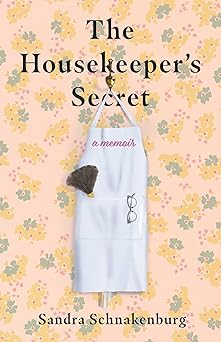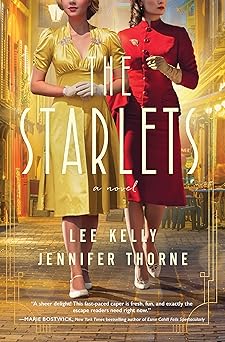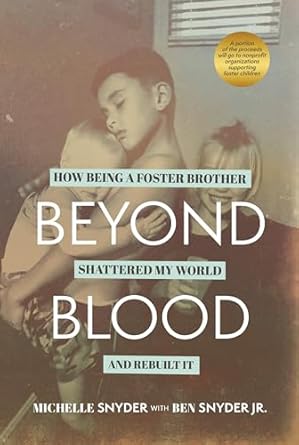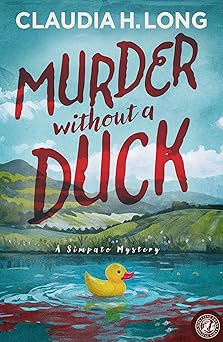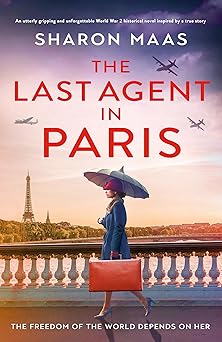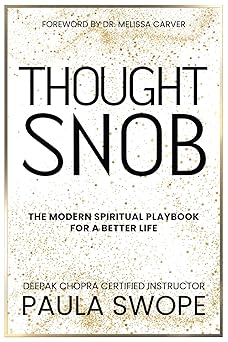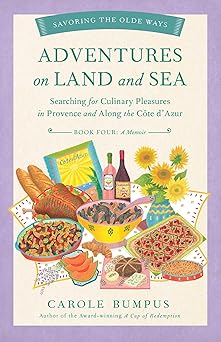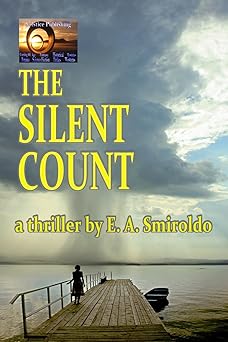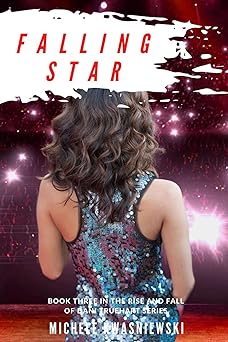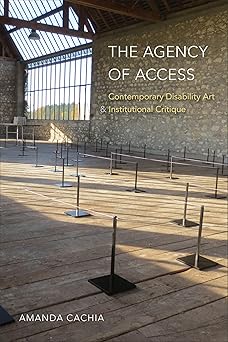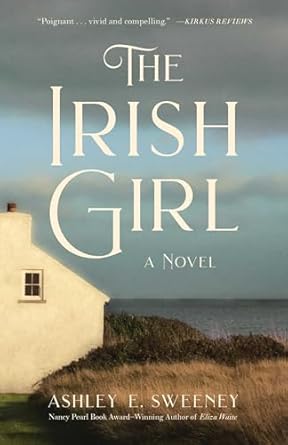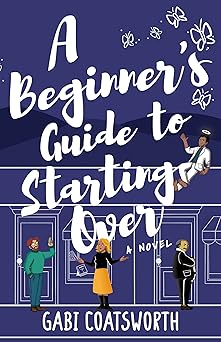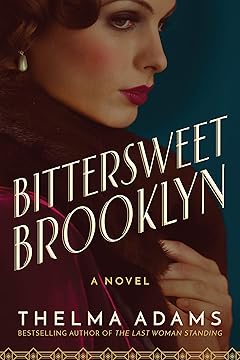Falling Through the Net: A Foray into Fiction
Falling Through the Net: A Foray into Fiction
Fiction is like a spider’s web, attached ever so slightly perhaps, but still attached to life at all four corners. Often the attachment is scarcely perceptible.
Virginia Woolf
By Lisa Russ Spaar
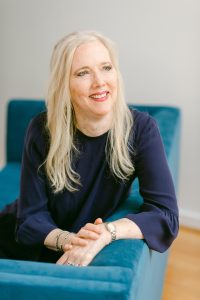 I think it’s worth saying at the outset that fiction isn’t the opposite of poetry. The best fiction is full of poetry—think William Faulkner, James Joyce, Jean Toomer, Toni Morrison, Zora Neale Hurston, Virginia Woolf—just as the most compelling poems contain, at the very least, the kinds of central tensions that propel narrative.
I think it’s worth saying at the outset that fiction isn’t the opposite of poetry. The best fiction is full of poetry—think William Faulkner, James Joyce, Jean Toomer, Toni Morrison, Zora Neale Hurston, Virginia Woolf—just as the most compelling poems contain, at the very least, the kinds of central tensions that propel narrative.
There is poetry in a fragrant bowl of cioppino, a starkly red maple leaf cast against a cerulean October sky, the early evening golden-hour light shifting over the bodies of the men’s cross-country team as they gallop, shirtless, up the hill toward the lot where I park my car at the University.
So perhaps it shouldn’t come as a complete surprise that a writer who has primarily written and published poetry for a few decades, but who also loves to read fiction, might turn her hand to crafting a novel.
One way I’ve talked with students about poetry and fiction is that time often flows into and through fiction while in a poem, especially a lyric one, time often rushes around it. In another analogy: every text is a mesh or net of language. In poetry, one often gets caught in the net—meaning happens in the knots and twists of words themselves—while in a novel or short story, the net is more transparent, the language is in service to the narrative, and the reader falls through it into the conjured world of the story, where Barkis is willing, Janie Crawford is walking back into Eatonville, Florida, in her overalls, and Mrs. Dalloway is pausing to look into the window of a glove shop on Bond Street.
Paradise Close actually began over three decades ago. My husband and I had recently moved from the east coast to Texas, where he was pursuing graduate jazz studies at the University of North Texas. Having grown up in New Jersey and then Virginia, in towns with seventeenth-century buildings and four full, even seasons characterized by lush greenery, blue mountains, and an ever nearby ocean, I found myself unmoored at first by the low, blonde brick ranch houses, the flat landscape with its scrub of mesquite and cottonwoods, its huge expanse of sky and seemingly unreachable horizon. I grew to appreciate, over the time I lived there, what I didn’t see at first—the new (to me) flora and fauna (least flycatchers, armadillos, wildflowers with beautiful names like Wine Cup and Indian Blanket), but one fallout for me was that I stopped writing poetry.
I was seized by a writer’s block so terrifying that it sent me to the Denton Public Library to read all the contemporary fiction I could get my hands on. I remember going down a Laurie Colwin rabbit-hole, reading everything from her stories to her cookbook. I also read Ellen Gilchrist, Cormac McCarthy, James Alan McPherson, Jeanette Winterson, Caryl Phillips. And then I tried my hand at writing some short stories of my own. They were execrable (a friend back East, a real fiction writer, generously read a few of them and was fiercely honest in his criticisms: “What is happening to this character? Is she suddenly convulsing in the backyard in a fit of ESP?”). The act of writing those stories was akin to treading water; the effort kept me afloat and connected to writing, if not actually moving me anywhere worthwhile.
At about this time, I also had an idea to write a story about a woman who tries to commit suicide by crashing her car on lumber road. She survives the crash, and the profound amnesia caused by the accident makes her forget that she ever wanted to die. I was interested in the problems of this: what happened to that impulse to die? Where did it go? Was there any danger in suppressing it? Why do some of us survive while others do not? This character wasn’t a projection of my own feelings; although I still couldn’t make poems come, I was making new friends, teaching, carrying my first child. I was full of hope.
And life went on. We had a second child and moved back east to take up jobs at the University of Virginia. We had a third child. I taught full-time. And eventually, reading alongside my wonderful students, I began to write again, to write poems. Along the way, I published some of these poems in journals; I curated them into book manuscripts that were then made into books. I continued to teach and learn. My children grew up. And all the while, every now and then, I would be revisited, haunted by the woman who had survived her own death wish.
Fifteen or so years ago, I began working on a prose-something, I wasn’t sure what to call it, about a lonely, insomniacal middle-aged man who had cherished and lost a lover, and who spent his evenings licking his wounds and tinkering on antique clocks. As his story gradually took shape around him, new characters emerged, one of them the woman with amnesia I’d long ago conjured up. Due to the exigencies of my life, I would sometimes have to put that manuscript away for a while.
About ten years ago, I started another prose-something in an attempt to write about experiences from my own adolescence that I didn’t want to approach autobiographically and couldn’t seem to work into poems. At a certain point, I realized that the two prose-somethings were actually part of the same story. The two adolescent protagonists of the more recent story “rhymed” with the two principal protagonists of the earlier clockmaker piece. And so I started working on both with a renewed sense of their shared concerns and tensions. I had a lot of fun bringing the two different stories together in a kind of coda: part three of Paradise Close.
Now that this debut novel is about to be published, I’m still working on poems but have also taken up a new prose-something. Given how long it took Paradise Close to gestate, this new work may never see the light of day. But that’s not why we tell stories, is it? Was it Didion who said that we tell stories because we live them, and that to cease to tell them is to cease to be alive.
—
Lisa Russ Spaar is the author of five books of original poetry plus a collection of essays, including Satin Cash, Blue Venus, and Vanitas, Rough and she is the editor of three poetry anthologies. She was a 2014 Finalist for the National Book Circle Critics Award for Excellence in Reviewing. Other honors include a Guggenheim Fellowship, a Rona Jaffe Award, the Carole Weinstein Prize in Poetry, and the Library of Virginia Award for Poetry. She is Professor of English and Creative Writing at the University of Virginia.
PARADISE CLOSE
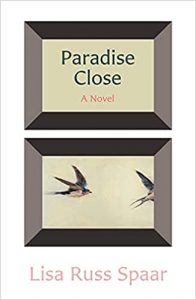 The paths of an orphaned girl in 1971 and a sixty-something recluse in 2016 entwine in a novel of damaged souls and salvaged hope.
The paths of an orphaned girl in 1971 and a sixty-something recluse in 2016 entwine in a novel of damaged souls and salvaged hope.
In 1971, orphan Marlise Schade―fourteen, anorectic, and evicted from the psychiatric hospital her trust fund can no longer support―finds herself alone in an ancestral home during a blizzard. Marlise’s struggles to survive there become the focal point for a host of imperiled figures, living and dead, whose stories intersect with hers and with forces roiling the U.S. in the ’70s.
Decades later, on the brink of Trump’s America, sixty-something Tee Handel is shaken by an inexplicable visitation. For years he’s nursed a deep hurt over his breakup with a captivating artist, spending his days and nights in solitude tinkering with antique clocks. What’s become of the artist, and how Tee reacts to his mysterious guest, testifies to the risk and inexorability of change.
These two seemingly unrelated tales entwine to show how the wages of the past are always with us, as are the dangerous and redemptive consequences of secrets confided and withheld.
BUY HERE
Category: On Writing




